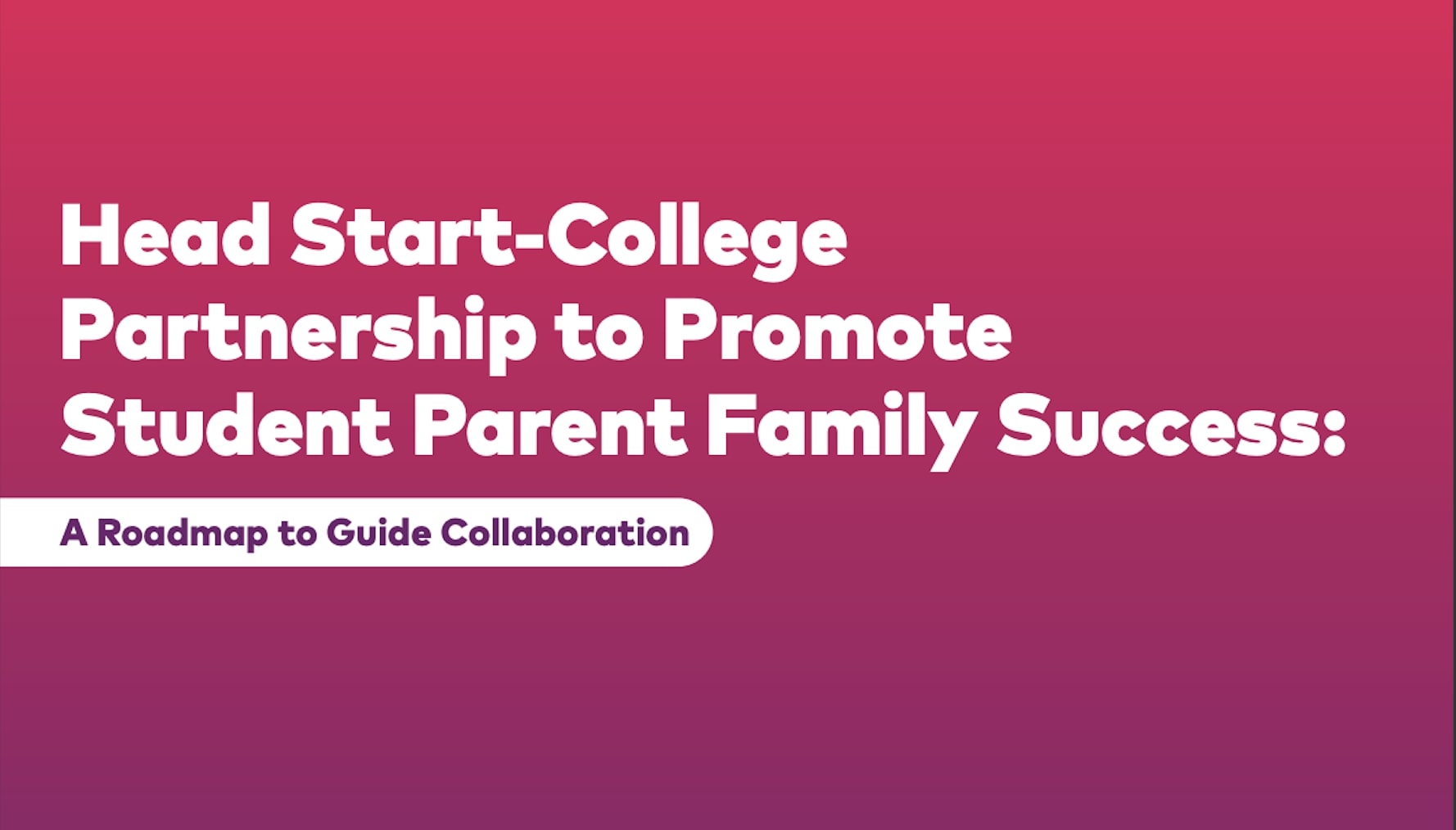Introduction
Collaboration between colleges and Head Start programs holds promise for promoting the educational and economic well-being of college students with young children.
Roughly 1.8 million student parents who have children under age six are income-eligible for Head Start services1 . Head Start provides access to highquality, affordable early learning opportunities for children alongside wraparound supports for parents which can help families achieve economic security by helping to facilitate parents’ attainment of college credentials. Head Start-college collaboration can also bring important benefits to colleges and universities as well as Head Start programs (Figure 1).
This guide is designed to help college and university administrators, campus child care directors, early learning faculty and staff, and other campus stakeholders to evaluate the needs of their parenting student body and assess whether a collaboration with Head Start is right for their institutions. It illustrates the first steps a college or university might take to evaluate whether a partnership with Head Start is a good fit for its campus, and how to begin conversations with a local Head Start grantee or provider about how collaboration might be mutually beneficial. The guide was informed by in-depth research on Head Start-college partnerships and by feedback from practitioners and advocates of Head Start-college partnerships around the country2 .


